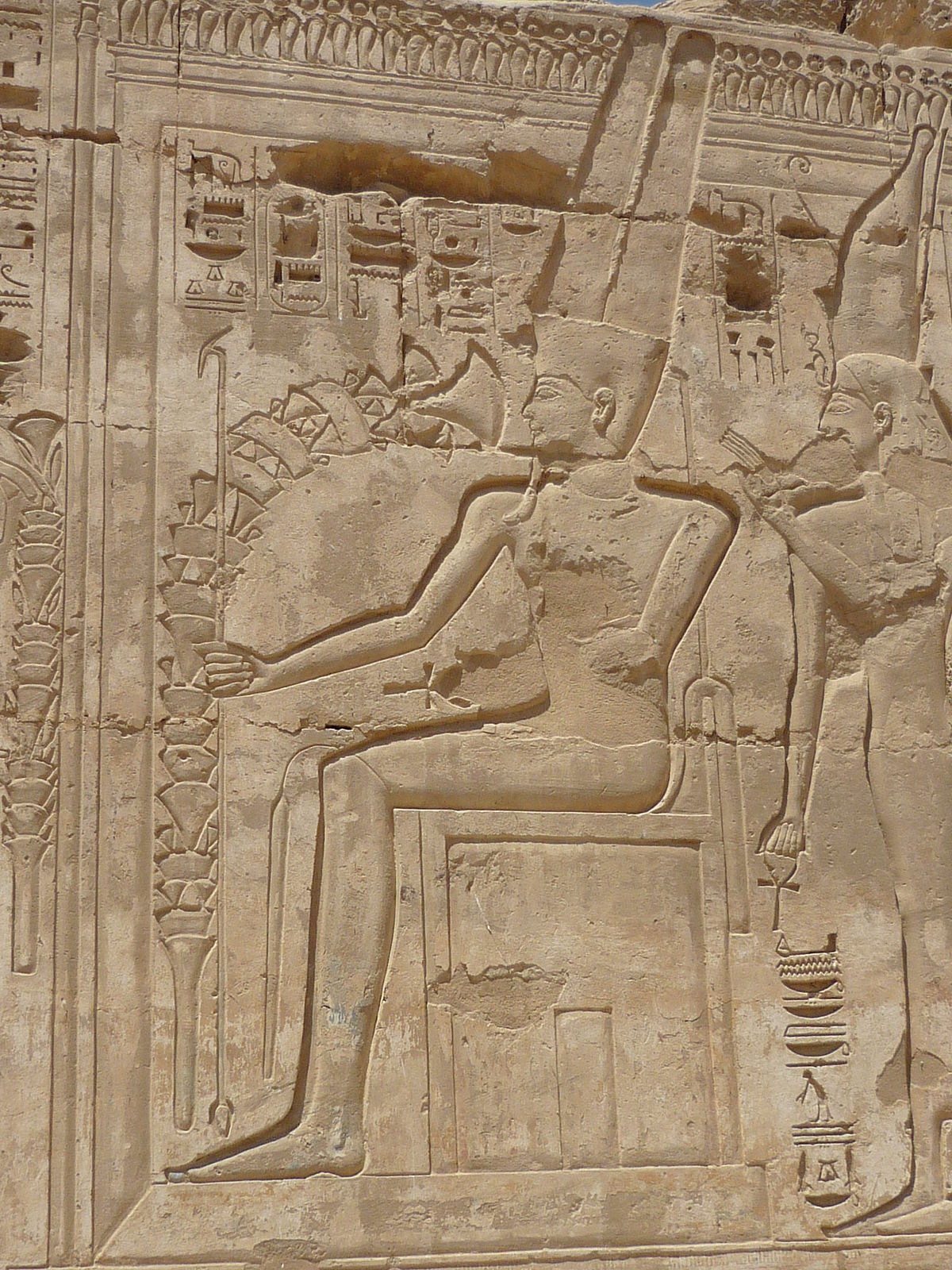ChieftheCef
Active Member
The forms of the word Amun, Amen (Christain and Jewish "amen") and Ameen (Islamic Amen), are said at the end of prayers. Is there any significance to this?
Welcome to Religious Forums, a friendly forum to discuss all religions in a friendly surrounding.
Your voice is missing! You will need to register to get access to the following site features:We hope to see you as a part of our community soon!
Yes, Amun is existence itself. All gods and people and stuff and everything else.Amen is akin to saying “so be it” or “so mote it be.”
Sounds similar to the Hindu concept of Brahman.Yes, Amun is existence itself. All gods and people and stuff and everything else.
No. Amun is Yamanu in Egyptian.The forms of the word Amun, Amen (Christain and Jewish "amen") and Ameen (Islamic Amen), are said at the end of prayers. Is there any significance to this?
Brahman is based off Atum, Atum is much earlier, by almost 600 years.Sounds similar to the Hindu concept of Brahman.
No, Amun has many stolen motifs, stories, lessons and laws from the Egyptians. See this and you will gain confidence I what you believe if you don't believe it's righthttps://youtu.be/RxYvD5E6iMY?si=RTgAHwetR8rz1zpXNo. Amun is Yamanu is Egyptian.
Words that sound the same in different languages are not always related. Amen is pronounced not nearly the same as Amun in Hebrew/Egyptian. They're completely unrealted.
I am familiar with Kemetic ideas, thank you. I have a book of hymns to Amun from the Hibis Temple. I know what Amun theology is and you are just trying to nonsensically attach unrelated words together. I have the Books of the Dead and have studied this for years.No, Amun has many stolen motifs, stories, lessons and laws from the Egyptians. See this and you will gain confidence I what you believe if you don't believe it's righthttps://youtu.be/RxYvD5E6iMY?si=RTgAHwetR8rz1zpX
How have you been so convinced?I am familiar with Kemetic ideas, thank you. I have a book of hymns to Amun from the Hibis Temple. I know what Amun theology is and you are just trying to nonsensically attach unrelated words together. I have the Books of the Dead and have studied this for years.
By the fact that these are by the time of Biblical Hebrew two completely unrelated languages that evolved thousands of years apart.How have you been so convinced?
Cite your sources please sir. Specifically for pronunciationBy the fact that these are by the time of Biblical Hebrew two completely unrelated languages that evolved thousands of years apart.
That 'Amun' is 'Yamaanuu' in Ancient Egyptian pronunciation. The transcriptions look like this: jmn. The j indicates the y sound in the Old Egyptian pronunciation. The root verb is to hide or be invisible, congruent with Amun's depiction early on as a wind God. The pronunciation changed with time, but still retained the glottal not found in the Hebrew 'amen'. Later on it sounds something like a'man'nuh, with a final vowel that 'amen' lacks and never had.
The Hebrew word 'amen' looks like this this at its root: א-מ-נ with an alef ('a') not a y (that would be a yod). This word can be truth, affirmation, confirmation etc. and has nothing to do with being hidden. This word has never been used to refer to any God in any Hebrew literature, because it is not a name.
These words are just not related at all.
Check this outBy the fact that these are by the time of Biblical Hebrew two completely unrelated languages that evolved thousands of years apart.
That 'Amun' is 'Yamaanuu' in Ancient Egyptian pronunciation. The transcriptions look like this: jmn. The j indicates the y sound in the Old Egyptian pronunciation. The root verb is to hide or be invisible, congruent with Amun's depiction early on as a wind God. The pronunciation changed with time, but still retained the glottal not found in the Hebrew 'amen'. Later on it sounds something like a'man'nuh, with a final vowel that 'amen' lacks and never had.
The Hebrew word 'amen' looks like this this at its root: א-מ-נ with an alef ('a') not a y (that would be a yod). This word can be truth, affirmation, confirmation etc. and has nothing to do with being hidden. This word has never been used to refer to any God in any Hebrew literature, because it is not a name.
These words are just not related at all.
I'm a miss.Cite your sources please sir. Specifically for pronunciation
Yes, this is exactly what I've been telling you.Check this out

jmn - Wiktionary, the free dictionary
en.m.wiktionary.org
From bing ai
The pronunciation of “jmn” in ancient Egyptian is reconstructed as /jaˈmaːnuw/, which later evolved into /ʔaˈmaːnə/ and then /ʔaˈmoːn/1. In modern Egyptological pronunciation, it is rendered as /imɛn/1. It’s important to note that the exact pronunciation of ancient Egyptian words is not known with certainty, and these are scholarly reconstructions based on various linguistic evidence. The conventional anglicization of “jmn” is “amen,” which reflects the later pronunciation stages1.
So why do you believe amen couldn't have evolved from amun? They both sound like amen, there both from the region, they were no h interconnects to each other. They were both adopted well after a nun had become the dominant pronunciation.Yes, this is exactly what I've been telling you.

It did.So why do you believe amen couldn't have evolved from amun?
Yeah they are. They're from latinIt did.
Is the word pup in English and Serbian word pup related? Of course not.
Yeah they are. They're from latin
From bing
In English, the word “pup” refers to a young dog. It can also denote the young of certain other animals, such as seals or rats12.
As for Serbian, the translation for “pup” is not provided in the search results. However, if you’re referring to the English word “pup” being used in Serbian, it would still refer to a young dog, as English words are often used in other languages without translation, especially for commonly known terms. If you’re looking for a specific Serbian term for a young dog, it would be “štene” in Latin script or “штене” in Cyrillic script.
Serbian is a Slavic language. It’s not derived from Latin.Yeah they are. They're from latin
